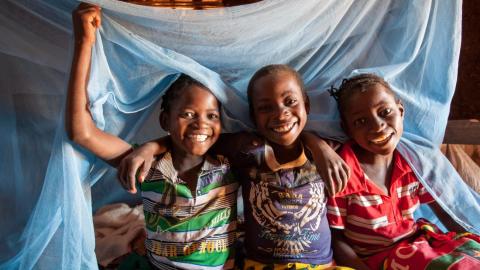
The Global Fund Malaria Project
In partnership with The Global Fund to Fight AIDS, Tuberculosis and Malaria and national partners, World Vision is working towards achieving Sustainable Development Goal (SDG) 3 to ‘ensure healthy lives and promote well-being for all at all ages’, by reducing global maternal mortality, ending preventable deaths of newborns and children under five, and ending the epidemics of AIDS, tuberculosis (TB), malaria and other diseases by 2030.
What is the problem?
Malaria is a major public health problem in Malawi, with an estimated 6 million cases recorded annually. For children under five years of age and pregnant women, it is a leading cause of morbidity and mortality. Currently, Malaria accounts for over 30% of outpatient visits and 34% of in-patients (HMIS 2018).
Malaria adds a burden on family efforts to pull out of poverty. Work hours lost, school absenteeism and high levels of expenditures for prevention and treatment are another burden for the state, family and children.
What is World Vision doing?
In an effort to reduce tha malaria burden, World Vision is supporting the Government of Malawi’s strategy on Integrated Vector Control which includes Long Lasting Insecticide Net (LLINS) distribution, Larvicide management and Indoor Residual Spraying (IRS).
World Vision’s relationship with the Global Fund stretches back from 2017 when the children’s charity reached over 10.8 million people with a combination of Long-Lasting Insecticide Treated Nets, setting up of Village clinics and training of Health Surveillance Assistants, and provision of Malaria Rapid Diagnostic Testing Kits.
What’s our impact through the Global Fund grant?
- In 2020, World Vision safeguarded nearly 2 million people from Malaria through IRS.
- Between January and March 2021, the three districts of Mangochi and Balaka registered a 50% malaria reduction in comparison to the same period in the previous year 2020.
- World Vision is further implementing different Social Behaviour Change interventions aimed at improving the adoption of different malaria prevention approaches at work.
- The IRS project alone employs over 5,000 seasonal workers, a majority of which are young people.
- For the 2021 spray period, the project is expected to cover 90% of the 336,257 eligible houses.
Related resources